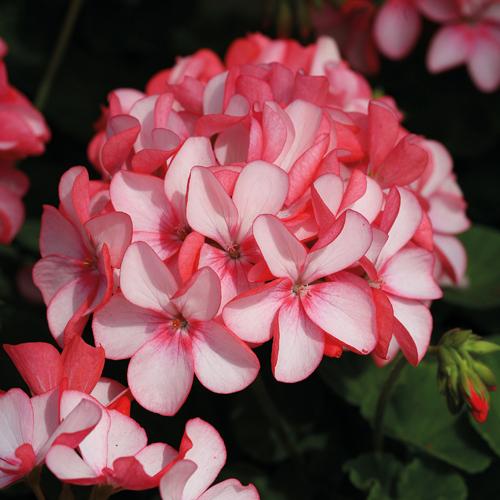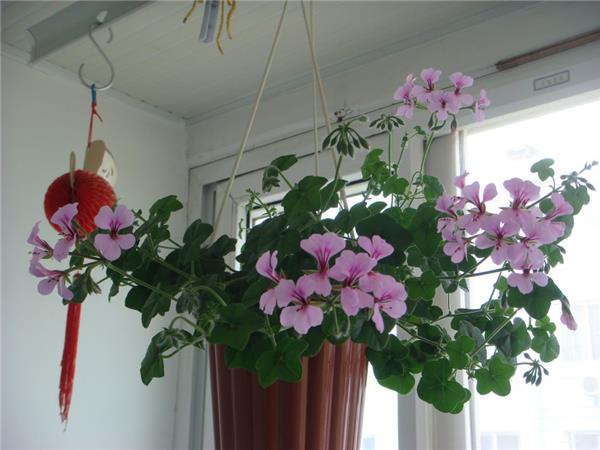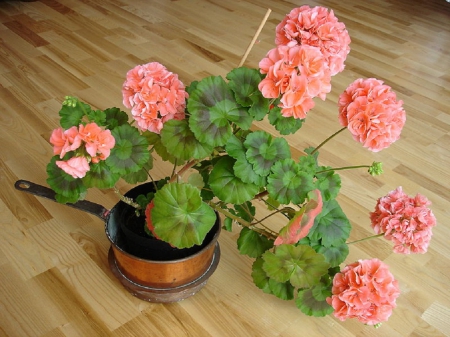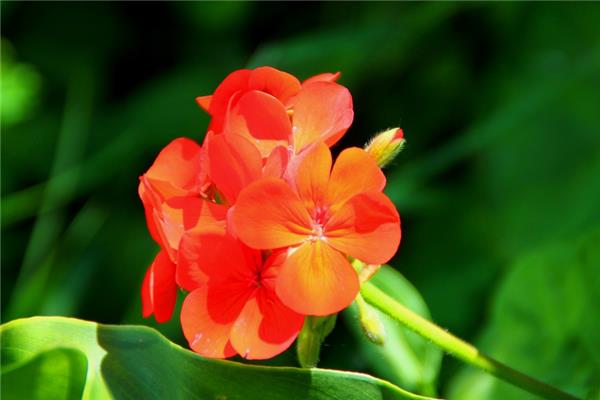Propagation skills of Pelargonium pelargonium Culture method of Pelargonium
The geranium from South Africa gives off a rose-like fragrance and is much cheaper than a rose. In particular, she has an effect that roses do not have-to ward off mosquitoes. If you put a few pots of geraniums in the bedroom, you can not only enjoy the nobility and comfort of the rose garden, but also avoid mosquitoes. Why not? The following editor will introduce to you the propagation skills of geraniums and the culture methods of geraniums.

Propagation techniques of Pelargonium vulgaris
1. The best insertion time is autumn. In principle, it can be inserted in any season except summer, but autumn is the best. Because after the vigorous growth in spring and early summer, the geranium plant type is full again, and after semi-dormancy trimming in cool summer, the vitality blooms again as the weather turns cool, and the branches are the strongest at this time.
2. Prepare for insertion. Different from the ordinary insertion operation, the method introduced by the author is not to intercept branches directly, but to need a preliminary stage of insertion, which is also the focus of this technology. The specific method is to select a strong branch that grew in that year, find a branch less than 10 centimeters, and gently carve out a ring groove with scissors two centimeters below the branch, instead of cutting it (see figure). Pay attention to the importance, avoid cutting, and do not carve too deeply, otherwise touching and blowing in the wind will also lead to breakage. Let the branches continue to grow on the matrix for two to three weeks.

3. Insert operation. Prepare the cuttings and soil, here is the same as the ordinary cuttings, but in the choice of cuttings, the author will choose a transparent disposable plastic water cup as the cuttings (available in the supermarket, very cheap). Because the transparent cup body is easy to observe the rooting of cuttings. Before loading the soil, poke three small holes with bamboo sticks at the bottom of the cup to facilitate drainage and ventilation. Put the moist culture soil into a transparent plastic water cup, compact, insert the container and the medium ready. Then use scissors to cut the previously selected cuttings from the depicted ring groove, after two to three weeks, the wound has been completely dry, but the branches are still full of vitality. Instead of drying in the shade, insert the branches directly into the soil and make sure there are one or two branches under the soil.
4. Put it in the semi-shade, around, it can take root. During this period, the soil should be watered when it is completely dry, but to avoid getting too wet.

The insertion method of geraniums
First of all, I would like to tell you that the planting method of geraniums mainly depends on the insertion method. You can choose to insert in spring or autumn. If the geranium is inserted in the spring, the geranium will blossom during the Spring Festival next year. And if you do it in autumn, you can also get a glimpse of the geraniums at the end of April.
As for the selection of cutting branches, the tender shoot at the end of the geranium branch is the best. You can cut it with scissors 10 meters from the end, preferably keeping 2-3 young leaves, and then inserting them into clean sand. Place the young shoots of the geraniums in a cool place for the first two weeks to ensure that the leaves do not wilt due to massive water loss, after which you can move out to bask in the sun.
Culture methods of geraniums
1. Soil: geranium has strong adaptability and can grow in all kinds of soil, but the sandy loam soil rich in humus grows best.
2. Watering: geraniums like dryness, hate dampness, and should not be watered too much in winter. When the soil is wet, the stem is tender, which is not conducive to the sprouting and opening of flower branches; long-term excessive humidity will cause plants to grow too long, flower branches will move up, and the leaves will gradually yellow and fall off.
3. Sunshine: geraniums need plenty of sunlight during their growing season, so they must be placed in the sun in winter. Lack of light, long stems and leaves, soft pedicels and poor inflorescence; buds in low light often bloom poorly and wither ahead of time.

4. Temperature: the geranium likes to be warm in winter and cool in summer. It can blossom normally when the indoor temperature is kept 15 ℃ every day in winter and the temperature at night is above 8 ℃. But the optimum temperature is 15-20 ℃.
5, fertilization: geraniums do not like big fertilizer, too much fertilizer will make geraniums grow too prosperous and not conducive to flowering. In order to bloom luxuriantly, watering dilute book fertilizer water (rotten bean cake water) once every 2 weeks can promote normal flowering by watering 800 times potassium dihydrogen phosphate solution every 7-10 days.
6. Insect pests: geraniums are poorly ventilated and too humid, and are prone to leaf spot and Fusarium wilt. After discovery, pay attention to ventilation, immediately remove sick flowers and leaves to prevent infection, and spray the same amount of Bordeaux solution to prevent and cure. The main pests are red spiders and whitefly, which can be sprayed with 1000 times of omethoate emulsion.
7. Pruning: pruning in order to promote more flowering of the geranium with more branches, it is necessary to pick the heart of the plant many times to promote it to increase branches and budding. After shedding the flowers, cut off the residual flowers at the right time, cut off the too dense and thin branches, so as not to consume too much nutrients, but it is cold in winter and should not be re-cut.

The above content is about the introduction of the breeding techniques of geranium, the adaptability of geranium is very strong, so the maintenance is relatively simple, there are many varieties of geranium, pot planting layout is a good choice to beautify the home.
It is easy to develop leaf spot and Fusarium wilt. After discovery, pay attention to ventilation, immediately remove sick flowers and leaves to prevent infection, and spray the same amount of Bordeaux solution to prevent and cure. The main pests are red spiders and whitefly, which can be sprayed with 1000 times of omethoate emulsion.
7. Pruning: pruning in order to promote more flowering of the geranium with more branches, it is necessary to pick the heart of the plant many times to promote it to increase branches and budding. After shedding the flowers, cut off the residual flowers at the right time, cut off the too dense and thin branches, so as not to consume too much nutrients, but it is cold in winter and should not be re-cut.

The above content is about the introduction of the breeding techniques of geranium, the adaptability of geranium is very strong, so the maintenance is relatively simple, there are many varieties of geranium, pot planting layout is a good choice to beautify the home.
- Prev

Species of crabapple flowers and culture methods of crabapple flowers
Species of crabapple flowers and culture methods of crabapple flowers
- Next

Pictures of wild chrysanthemum the efficacy and function of wild chrysanthemum
Pictures of wild chrysanthemum the efficacy and function of wild chrysanthemum
Related
- Wuhan Hospital Iron Tree Blooming Result Was Instantly Frightened by the Gardener Master
- Which variety of camellia is the most fragrant and best? Which one do you like best?
- What is the small blue coat, the breeding methods and matters needing attention of the succulent plant
- Dormancy time and maintenance management of succulent plants during dormancy
- Minas succulent how to raise, Minas succulent plant pictures
- What are the varieties of winter succulent plants
- How to raise succulent plants in twelve rolls? let's take a look at some experience of breeding twelve rolls.
- Attention should be paid to water control for succulent plants during dormant period (winter and summer)
- Watering experience of twelve rolls of succulent plants
- Techniques for fertilizing succulent plants. An article will let you know how to fertilize succulent plants.

